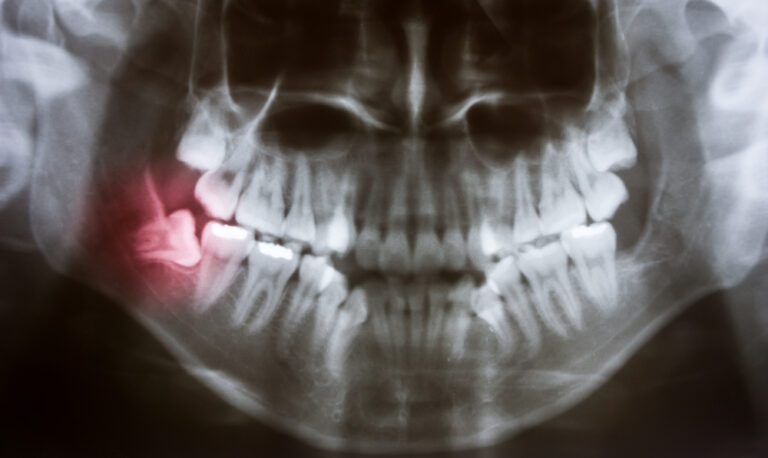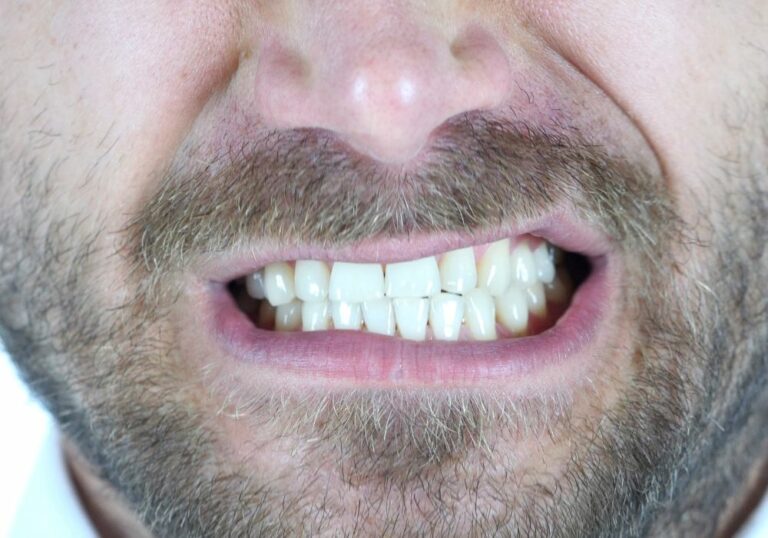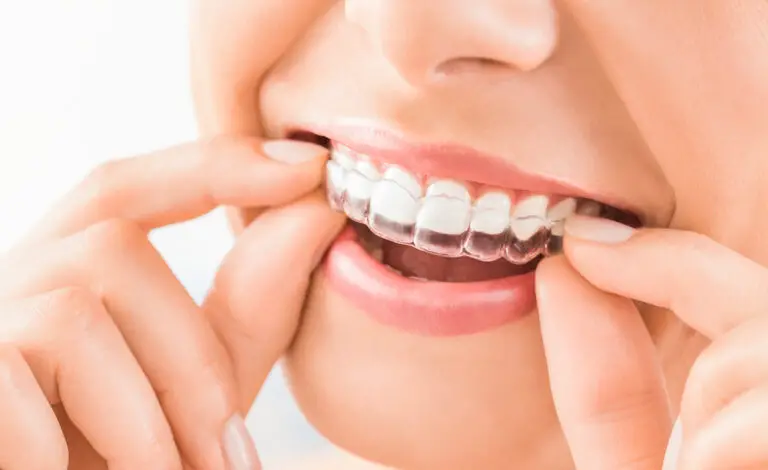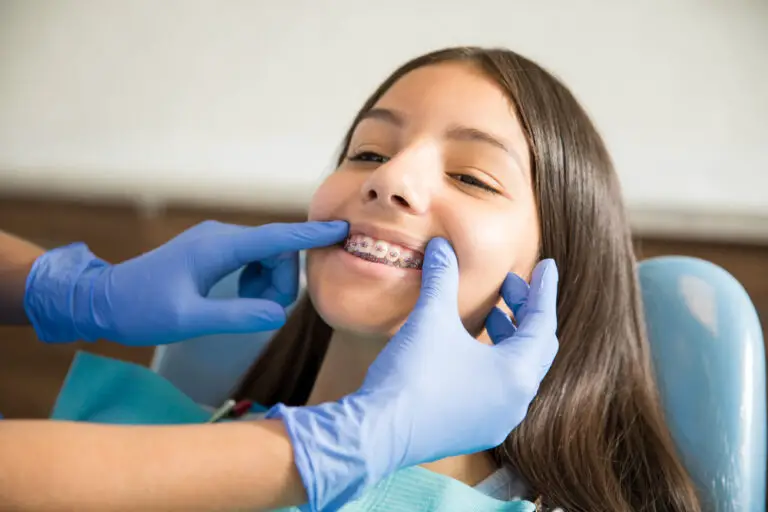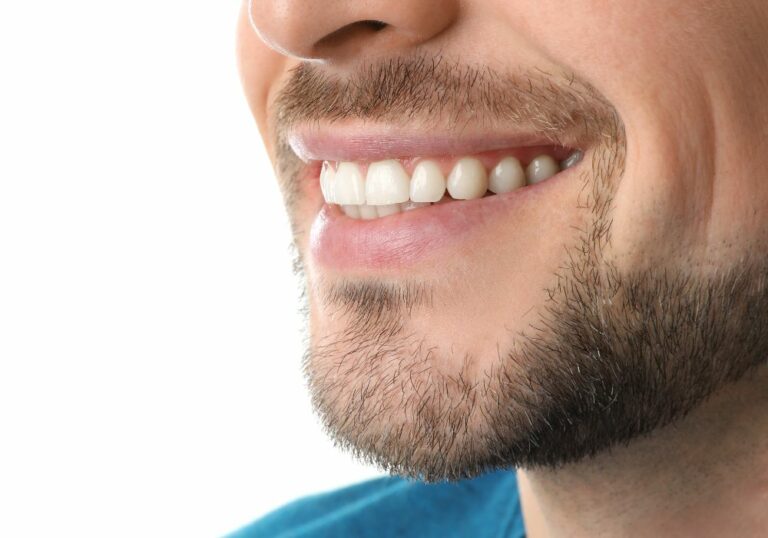Do you notice your gums bleeding when you brush your teeth? It’s a common problem that many people face, and it can be caused by a variety of factors. Bleeding gums can be a sign of poor oral hygiene, but it can also be a symptom of more serious conditions such as gum disease or vitamin deficiencies. If you’re wondering how to get your gums to stop bleeding when you brush your teeth, there are a few things you can do to help.
One of the most important things you can do is to practice good oral hygiene. This means brushing your teeth at least twice a day and flossing daily. It’s also important to use a soft-bristled toothbrush and to brush gently, as brushing too hard can actually damage your gums and cause them to bleed. In addition to brushing and flossing, you may also want to consider using an antiseptic mouthwash to help kill bacteria and promote healthy gums.
Understanding Gum Bleeding
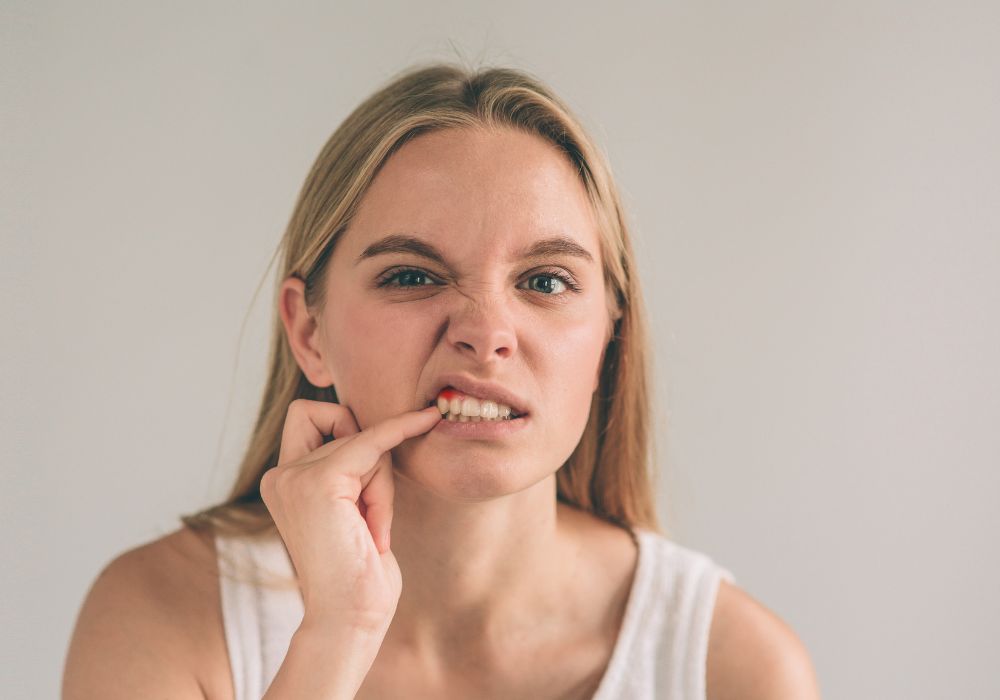
Gum bleeding is a common dental problem that can occur when you brush your teeth, floss, or eat. It is usually a sign of gum disease, a condition that affects the tissues that surround and support your teeth. Gum disease can cause your gums to become inflamed, swollen, and bleed easily. In this section, we will explore the causes and symptoms of gum bleeding.
Causes of Gum Bleeding
There are several factors that can contribute to gum bleeding. Some of the most common causes include:
- Poor oral hygiene: When you don’t brush and floss your teeth regularly, plaque can build up on your teeth and gums. Plaque is a sticky film of bacteria that can irritate your gums and cause them to bleed.
- Gum disease: Gingivitis and periodontitis are two types of gum disease that can cause gum bleeding. Gingivitis is a mild form of gum disease that can be reversed with proper oral hygiene. Periodontitis is a more severe form of gum disease that can cause irreversible damage to your gums and teeth.
- Medications: Certain medications, such as blood thinners, can increase your risk of gum bleeding.
- Nutritional deficiencies: A lack of vitamin C or K in your diet can make your gums more prone to bleeding.
- Hormonal changes: Hormonal changes during pregnancy, puberty, and menopause can cause your gums to become more sensitive and bleed more easily.
Symptoms of Gum Bleeding
If you notice any of the following symptoms, you may be experiencing gum bleeding:
- Red, swollen, or tender gums
- Gums that bleed easily when you brush or floss your teeth
- Bad breath
- Receding gums
- Loose teeth
If you are experiencing gum bleeding, it’s important to see your dentist as soon as possible. Your dentist can evaluate the health of your gums and recommend appropriate treatment options. In the next section, we will explore some effective methods for treating and preventing gum bleeding.
The Importance of Oral Hygiene
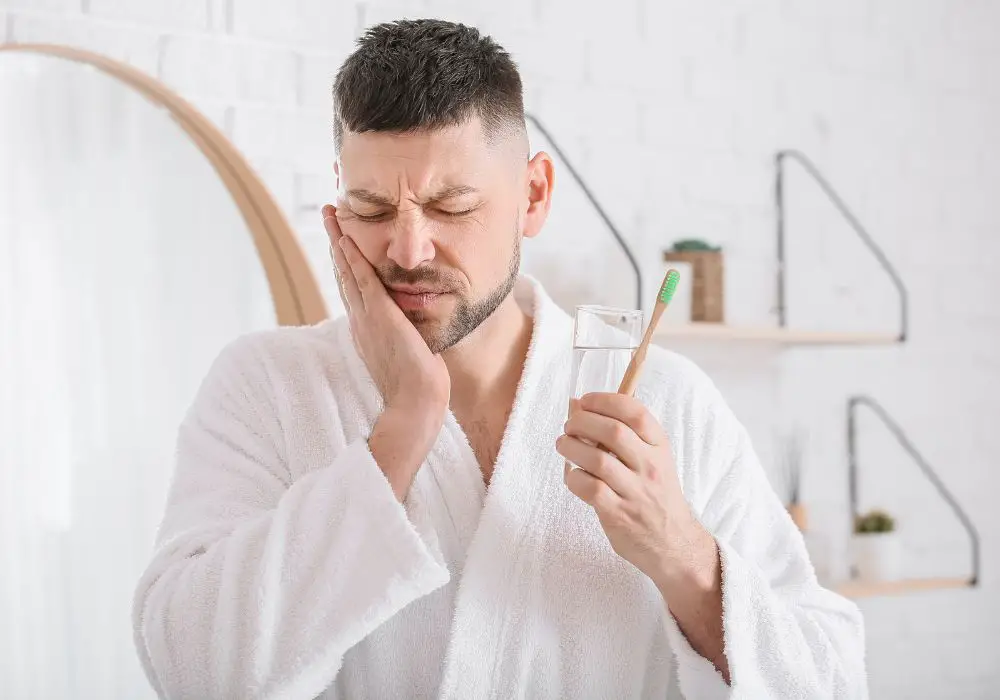
Taking care of your teeth and gums is crucial for maintaining good oral health. Proper oral hygiene can prevent tooth decay, gum disease, and other oral health problems. Here are some important steps you can take to keep your gums healthy:
Proper Brushing Technique
Brushing your teeth twice a day is an important part of maintaining good oral hygiene. However, it’s not just about brushing your teeth; you need to brush them properly. Here’s how to do it:
- Use a soft-bristled toothbrush and fluoride toothpaste.
- Hold your toothbrush at a 45-degree angle to your gums.
- Use gentle circular motions to brush the front, back, and top of your teeth.
- Brush your tongue and the roof of your mouth to remove bacteria and freshen your breath.
- Don’t forget to replace your toothbrush every three to four months.
Flossing Regularly
Flossing is another important part of maintaining good oral hygiene. It helps remove food particles and plaque from between your teeth and along your gum line. Here’s how to do it:
- Use about 18 inches of floss and wrap it around your middle fingers.
- Hold the floss tightly between your thumbs and forefingers.
- Gently slide the floss between your teeth, using a back-and-forth motion.
- Curve the floss around each tooth and slide it up and down the sides.
- Be sure to floss both sides of every tooth, including the back molars.
By following these simple steps, you can help prevent bleeding gums, tooth decay, and other oral health problems. Remember, good oral hygiene is an important part of maintaining good overall health.
Lifestyle Modifications
If you experience bleeding gums when brushing your teeth, making some lifestyle modifications can help alleviate the issue. Here are two sub-sections to help you get started:
Healthy Diet
Eating a healthy diet can help improve your oral health and prevent bleeding gums. Include foods rich in vitamins A, C, and K, as well as calcium and magnesium in your diet. These nutrients are essential for healthy gums and teeth.
Here are some foods to consider adding to your diet:
- Leafy greens like spinach and kale
- Citrus fruits like oranges and grapefruits
- Dairy products like milk and cheese
- Lean proteins like chicken and fish
- Nuts and seeds like almonds and pumpkin seeds
Avoiding Tobacco and Alcohol
Tobacco and alcohol use can contribute to bleeding gums. Smoking and chewing tobacco can irritate your gums and cause inflammation, while alcohol can dry out your mouth and lead to gum disease.
If you use tobacco or drink alcohol, consider quitting or reducing your intake. If you need help quitting, talk to your healthcare provider or seek support from a quitline or support group.
By making these simple lifestyle modifications, you can help improve your oral health and reduce your risk of bleeding gums.
Medical Treatments
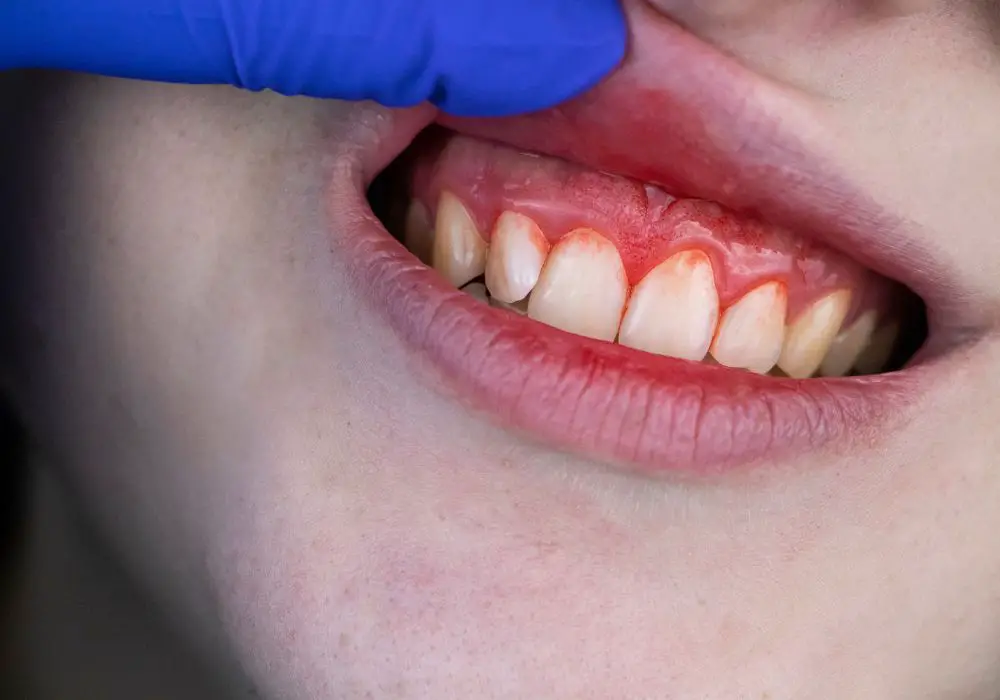
If your gums continue to bleed despite practicing good oral hygiene, you may need to seek medical treatment. Here are some common medical treatments that can help stop bleeding gums:
Dental Check-ups
Regular dental check-ups are essential for maintaining good oral health. Your dentist can identify any underlying issues that may be causing your gums to bleed. During a dental check-up, your dentist will examine your teeth and gums and look for signs of inflammation or infection. They may also take X-rays to check for any underlying dental problems.
Professional Cleaning
Professional dental cleaning, also known as scaling and root planing, is a non-surgical procedure that removes plaque and tartar buildup from your teeth and gums. This procedure can help reduce inflammation and bleeding in your gums. During a professional cleaning, your dentist or dental hygienist will use specialized tools to remove plaque and tartar from your teeth and gums. They may also polish your teeth to remove any surface stains.
It’s important to note that medical treatments alone may not be enough to stop bleeding gums. You must also practice good oral hygiene at home, including brushing twice a day and flossing daily. Additionally, you may need to make some lifestyle changes, such as quitting smoking or improving your diet, to promote good oral health.
Home Remedies
If you’re experiencing bleeding gums when brushing your teeth, there are some home remedies that may help alleviate the issue. Here are a few options to consider:
Salt Water Rinse
A salt water rinse is a simple and effective way to soothe irritated gums and reduce bleeding. To make a salt water rinse, dissolve one teaspoon of salt in a cup of warm water. Swish the solution around in your mouth for about 30 seconds, then spit it out. Repeat this process a few times a day until the bleeding subsides.
Cold Compress
Another way to reduce gum inflammation and bleeding is to apply a cold compress to the affected area. Simply wrap a few ice cubes in a clean cloth and hold it against your gums for a few minutes at a time. Repeat as needed throughout the day.
In addition to these home remedies, it’s important to maintain good oral hygiene practices to prevent further bleeding. Make sure to brush your teeth twice a day and floss at least once a day. If the bleeding persists or is accompanied by other symptoms such as pain or swelling, it’s best to consult with a dentist as soon as possible.
Frequently Asked Questions
Why do my gums bleed when I brush my teeth?
Bleeding gums while brushing your teeth can be caused by a buildup of plaque along the gum line. Plaque is a sticky film of bacteria that forms on your teeth and gums. If left untreated, it can lead to gum disease, which can cause bleeding, inflammation, and even tooth loss.
What are some home remedies to stop bleeding gums?
Practicing good oral hygiene is the best way to prevent bleeding gums. This includes brushing your teeth twice a day, flossing daily, and using an antiseptic mouthwash. You can also try using a warm saltwater rinse or applying a cold compress to the affected area to reduce inflammation.
Is bleeding gums a sign of gum disease?
Yes, bleeding gums can be a sign of gum disease. If left untreated, gum disease can cause serious damage to your teeth and gums, including tooth loss. It is important to see a dentist if you experience bleeding gums on a regular basis.
How can I prevent my gums from bleeding?
Practicing good oral hygiene is the best way to prevent bleeding gums. This includes brushing your teeth twice a day, flossing daily, and using an antiseptic mouthwash. You should also avoid smoking and eat a healthy diet that is rich in vitamins and minerals.
Can certain foods or drinks cause bleeding gums?
Certain foods and drinks, such as sugary and acidic foods, can contribute to the development of plaque and gum disease. It is important to limit your intake of these foods and drinks and to brush your teeth after consuming them.
When should I see a dentist about bleeding gums?
If you experience bleeding gums on a regular basis, you should see a dentist as soon as possible. Your dentist can help diagnose the underlying cause of your bleeding gums and recommend appropriate treatment. It is important to address the issue early to prevent more serious dental problems from developing.

